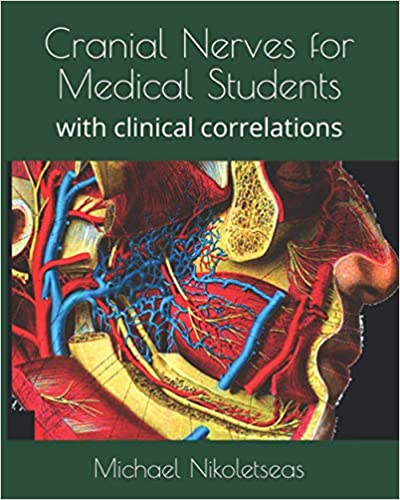Review Parmenides: The World as Modus Cogitandi
Key Points
Research suggests this book offers a new interpretation of Parmenides, focusing on "Eon" as a formal language for natural science.
It seems likely that it challenges traditional views, viewing Parmenides' work as epistemological rather than ontological.
The evidence leans toward it being recognized in academic circles, though specific reviews are limited.
Book Overview
"Parmenides: The World as Modus Cogitandi: Third Edition" by Michael M. Nikoletseas, published in 2016, reinterprets Parmenides' philosophy. It argues that "Eon" is not about "Being" but a formal language for studying nature, making it a significant contribution to philosophy.
Author's Background
Michael M. Nikoletseas, a professor with degrees in psychology, medicine, and classics, brings an interdisciplinary approach, blending science and philosophy in his analysis.
Reception
The book is listed on academic platforms like PhilPapers and held in libraries like Princeton and Oxford, suggesting recognition, but direct reviews are scarce, possibly due to its specialized audience.
Analysis of Parmenides: The World as Modus Cogitandi: Third Edition by Michael M. Nikoletseas
This section provides a comprehensive exploration of the book Parmenides: The World as Modus Cogitandi: Third Edition by Michael M. Nikoletseas, focusing on its content, the author's background, teaching approach, and reception, to offer a thorough understanding of its contribution to philosophical scholarship.
Introduction and Context
Parmenides: The World as Modus Cogitandi: Third Edition, published in 2016 with ISBN 978-1518891205, is the third iteration of Michael M. Nikoletseas's groundbreaking interpretation of the pre-Socratic philosopher Parmenides. Parmenides, active in the early 5th century BCE, is traditionally viewed as a metaphysical monist whose poem explores the nature of "Being" and challenges the cosmological theories of his predecessors. Nikoletseas, however, offers a novel reading, positioning Parmenides' work as an epistemological essay on method in natural science rather than a purely ontological treatise. This interpretation is particularly significant given Parmenides' influence on subsequent philosophy, including figures like Plato and Aristotle, and his role as a foundational thinker in Western metaphysics.
Book Summary and Content
The central thesis of the book is that "Eon," often translated as "Being," does not refer to a metaphysical entity but to a formal language necessary for a science of Physis (nature). This redefinition challenges the traditional ontological interpretation, which sees Parmenides as arguing for a unified, unchanging reality. Instead, Nikoletseas presents Parmenides' poem as an exploration of epistemology and methodology, emphasizing its relevance to the development of scientific thought.
The book is structured to support this thesis through a detailed analysis of Parmenides' poem, drawing on textual evidence and parallels with other pre-Socratic thinkers, particularly Heraclitus. It argues that Parmenides' work anticipates later developments in philosophy and science, such as the use of formal systems in mathematical physics. The third edition refines and expands upon earlier versions, incorporating additional arguments and clarifications to strengthen the case for this alternative interpretation.
Key topics covered include:
The reinterpretation of "Eon" as a formal language for natural science.
The epistemological focus of Parmenides' poem, emphasizing method over metaphysics.
Comparisons with Heraclitus, suggesting shared concerns with scientific inquiry.
The implications for the history of philosophy and the philosophy of science.
The book is described on platforms like Amazon and PhilPapers as a "milestone in Philosophy," highlighting its potential to reshape discussions about Parmenides and his legacy.
Author's Background and Credentials
Michael M. Nikoletseas is a professor with a diverse academic background, holding a B.A. with Honors in Psychology (1969-1973), M.S., and PhD in Psychobiology from Rutgers University (1973-1978), and conducting postdoctoral studies at the Medical College of Pennsylvania and the University of Medicine and Dentistry of New Jersey. He has taught at prestigious institutions, including the School of Medicine at the University of Wisconsin-Madison and as a visiting professor at the University of Texas at Houston School of Medicine. His awards include membership in the Franklin Honors Society (1973) and the “Top Professor” award (1992).
Nikoletseas's interdisciplinary expertise is evident in his approach, blending insights from psychology, medicine, and classics. He is also the author of several other works, including The Modus Cogitandi of Heraclitus (2015), Parmenides: Paraphrasing Heraclitus in Verse (2015), and Deus Absconditus - The Hidden God (2014), which further explore the intersections of philosophy and science. His academic lineage includes influential figures like Johannes Peter Müller and Wilhelm Max Wundt, and his "academic children" include scholars like Athina Markou and Evan Antzoulatos, underscoring his impact in academic circles.
Author's Approach and Methodology
Nikoletseas's interpretation is informed by his background as a natural scientist, which is reflected in his emphasis on Parmenides' relevance to scientific methodology. He challenges the traditional view of Parmenides as a metaphysical monist, arguing instead that the poem is an epistemological essay. This approach is consistent with his other works, such as The Modus Cogitandi of Heraclitus, which also reinterprets pre-Socratic philosophy through a scientific lens.
The book employs a textual analysis of Parmenides' poem, supported by evidence from the text itself and comparisons with contemporary philosophical ideas. It also draws on modern scientific concepts, such as formal systems and mathematical physics, to argue for Parmenides' anticipation of scientific thought. This interdisciplinary methodology makes the book unique, bridging ancient philosophy with contemporary scientific inquiry.
Reception and Impact
While direct customer reviews for the third edition are not available on platforms like Amazon, the book has garnered attention in academic circles. It is listed on PhilPapers , a database for philosophy research, and is referenced in discussions of Parmenidean scholarship. It is also held in major libraries, including Princeton, Oxford, and Cambridge, as noted in descriptions on Google Books and Amazon, indicating its recognition as a serious contribution to the field.
The absence of customer reviews may be due to the book's specialized nature, as it is primarily aimed at scholars and readers with a strong interest in pre-Socratic philosophy. However, its presence in academic databases and libraries suggests it is valued by academics. The book's thesis has the potential to provoke significant debate, challenging established interpretations and opening new avenues for understanding the relationship between philosophy and science in the pre-Socratic era.
A draft preview on Academia.edu invites comments and discussion, suggesting an ongoing dialogue among scholars. This aligns with the book's description as a "groundbreaking interpretation," indicating its role in stimulating academic discourse.
Comparative Analysis with Other Works on Parmenides
Compared to traditional interpretations, such as those found in the Stanford Encyclopedia of Philosophy and the Internet Encyclopedia of Philosophy , Nikoletseas's work stands out for its focus on epistemology and scientific methodology. Traditional views often emphasize Parmenides' metaphysical monism and his influence on later philosophers like Plato, while Nikoletseas repositions him as a thinker concerned with the foundations of scientific inquiry.
This approach aligns with other works by Nikoletseas, such as Parmenides: Paraphrasing Heraclitus in Verse , which also explores connections between Parmenides and Heraclitus from a scientific perspective. The emphasis on formal language and natural science distinguishes Nikoletseas's interpretation, potentially appealing to readers interested in the history of science and philosophy.
Modern Scientific Perspective
Nikoletseas's background as a natural scientist is evident in his interpretation, particularly in the focus on Parmenides' relevance to scientific methodology. By arguing that "Eon" refers to a formal language for Physis, the book bridges ancient philosophy with modern scientific concepts, such as formal systems in mathematical physics. This approach is consistent with his other works, such as Deus Absconditus - The Hidden God (2014), which also integrates scientific perspectives into philosophical analysis.
Summary Table: Key Aspects of Parmenides: The World as Modus Cogitandi: Third Edition
To organize the information, the following table summarizes key aspects derived from the analysis:
Aspect
Details
Book Title
Parmenides: The World as Modus Cogitandi: Third Edition, published 2016, ISBN 978-1518891205
Content
Reinterprets Parmenides, "Eon" as formal language for natural science, epistemological focus
Author's Background
Professor of Psychology and Medicine, classics interest, taught at Wisconsin-Madison, Texas at Houston
Awards
Franklin Honors Society (1973), “Top Professor” (1992); works in Princeton, Oxford libraries
Reception
Listed on PhilPapers, held in top libraries, limited customer reviews, academic recognition
Significance
Challenges traditional views, bridges philosophy and science, potential impact on Parmenidean studies
This table encapsulates the multifaceted nature of the book, providing a structured overview for further study.
Conclusion
Parmenides: The World as Modus Cogitandi: Third Edition by Michael M. Nikoletseas is a thought-provoking and ambitious work that redefines the lens through which we view Parmenides. Its strength lies in its interdisciplinary approach, combining philosophical analysis with insights from natural science to offer a fresh perspective on a foundational text of Western philosophy. The book is particularly valuable for readers interested in the history of science, epistemology, and the intersection of philosophy and scientific methodology. While it may be demanding for non-specialists, it is an essential read for scholars and advanced students seeking to explore the epistemological dimensions of ancient Greek philosophy and its relevance to modern scientific inquiry.
Key Citations
Parmenides World as Modus Cogitandi Third Edition Amazon page
Michael M. Nikoletseas Parmenides Third Edition PhilPapers entry
(PDF) PARMENIDES WORLD AS MODUS COGITANDI Preview Academia.edu
Parmenides Stanford Encyclopedia of Philosophy entry
Parmenides Internet Encyclopedia of Philosophy entry
Parmenides Paraphrasing Heraclitus in Verse Amazon page

- 118 reads







Add new comment